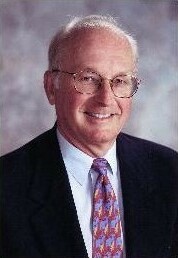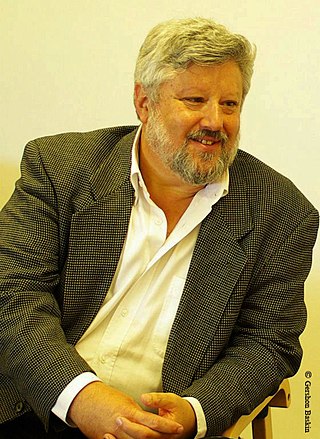
Israeli settlements or colonies are civilian communities where Israeli citizens live, almost exclusively of Jewish identity or ethnicity, built on lands occupied by Israel since the Six-Day War in 1967. The international community consider Israeli settlements to be illegal under international law, though Israel disputes this.

United Nations Security Council Resolution 242 (S/RES/242) was adopted unanimously by the UN Security Council on November 22, 1967, in the aftermath of the Six-Day War. It was adopted under Chapter VI of the UN Charter. The resolution was sponsored by British ambassador Lord Caradon and was one of five drafts under consideration.

The Oslo I Accord or Oslo I, officially called the Declaration of Principles on Interim Self-Government Arrangements or short Declaration of Principles (DOP), was an attempt in 1993 to set up a framework that would lead to the resolution of the ongoing Israeli–Palestinian conflict. It was the first face-to-face agreement between the government of Israel and the Palestine Liberation Organization (PLO).

Arab–Israeli peace projects are projects to promote peace and understanding between the Arab League and Israel in different spheres. These are part of a broader attempt at a peace process between Palestinians and Israelis. Sponsors of such projects can be found both in Israel and Palestine.

The Camp David Accords were a pair of political agreements signed by Egyptian President Anwar Sadat and Israeli Prime Minister Menachem Begin on 17 September 1978, following twelve days of secret negotiations at Camp David, the country retreat of the President of the United States in Maryland. The two framework agreements were signed at the White House and were witnessed by President Jimmy Carter. The second of these frameworks led directly to the 1979 Egypt–Israel peace treaty. Due to the agreement, Sadat and Begin received the shared 1978 Nobel Peace Prize. The first framework, which dealt with the Palestinian territories, was written without participation of the Palestinians and was condemned by the United Nations.

The 2000 Camp David Summit was a summit meeting at Camp David between United States president Bill Clinton, Israeli prime minister Ehud Barak and Palestinian Authority chairman Yasser Arafat. The summit took place between 11 and 25 July 2000 and was an effort to end the Israeli–Palestinian conflict. The summit ended without an agreement.
The Council for the National Interest ("CNI") is a 501(c)(4) non-profit, non-partisan anti-war advocacy group focused on transparency and accountability about the relationship of Israel and the United States and the impact their alliance has for other nations and individuals in other Middle East countries. Based in the United States and most active during the 2000s decade, the Council has highlighted Israel's disposition towards its neighbors, and how Middle Eastern nations, Palestinian rights and other aspects of Middle East life & relations are impacted by the Israel's policies and its financial, trade, and military relationships with the US. They have focused on popular sentiment and perceptions in the US and the between the two countries. They highlight how these policies have impacted the fate of Palestine and, treatment of Muslims within the US since the 1990s.

Intermittent discussions are held by various parties and proposals put forward in an attempt to resolve the ongoing Israeli–Palestinian conflict through a peace process. Since the 1970s, there has been a parallel effort made to find terms upon which peace can be agreed to in both the Arab–Israeli conflict and in the Palestinian–Israeli conflict. Some countries have signed peace treaties, such as the Egypt–Israel (1979) and Jordan–Israel (1994) treaties, whereas some have not yet found a mutual basis to do so.

Rashid Ismail Khalidi is a Palestinian-American historian of the Middle East and the Edward Said Professor of Modern Arab Studies at Columbia University. He served as editor of the Journal of Palestine Studies from 2002 until 2020, when he became co-editor with Sherene Seikaly.

Israel is an associated state of the European Union. The relations between the two are framed in the European Neighbourhood Policy (ENP), the Euro-Mediterranean Partnership, and the Union for the Mediterranean.

The Arab Peace Initiative, also known as the Saudi Initiative, is a 10 sentence proposal for an end to the Arab–Israeli conflict that was endorsed by the Arab League in 2002 at the Beirut Summit and re-endorsed at the 2007 and at the 2017 Arab League summits. The initiative offers normalisation of relations by the Arab world with Israel, in return for a full withdrawal by Israel from the occupied territories, a "just settlement" of the Palestinian refugee problem based on UN Resolution 194, and the establishment of a Palestinian state with East Jerusalem as its capital. The Initiative was initially overshadowed by the Passover massacre, a major Palestinian attack that took place on 27 March 2002, the day before the Initiative was published.

The bilateral relations between the State of Palestine and Russia have a complex history, deeply interwoven with Russian and Soviet relations with the Israeli enterprise, Palestinian nationalism, and Third World national liberation movements in general. Between 1956 and 1990, Soviet-Palestinian relations were also part and parcel of the then ongoing Soviet-American confrontation. This relationship has continued even today. Russia remains an important player in the Middle East peace process and is a member of the Middle East Quartet.

William B. Quandt is an American scholar, author, and professor emeritus in the Department of Politics at the University of Virginia. He previously served as senior fellow in the Foreign Policy Studies Program at the Brookings Institution and as a member on the National Security Council in the Richard Nixon and Jimmy Carter administrations. He was actively involved in the negotiations that led to the Camp David Accords and the Egypt–Israel peace treaty. His areas of expertise include Algeria, Egypt, Israel, Palestine, the Israeli–Palestinian peace process, and U.S. foreign policy.

China–Palestine relations, also referred to as Sino–Palestinian relations, encompasses the long bilateral relationship between China and Palestine dating back from the early years of the Cold War.

Relations between the European Union and the Palestine Liberation Organisation (PLO) were established in 1975 as part of the Euro-Arab Dialogue. The EU is a member of the Quartet and is the single largest donor of foreign aid to the Palestinian Authority.
NGO Monitor is a right-wing non-governmental organization based in Jerusalem that reports on international NGO activity from a pro-Israel perspective.

The Alliance for Middle East Peace (ALLMEP) is a group of over 100 leading non-governmental organizations working to foster reconciliation between Israelis and Palestinians, and between Arabs and Jews in Israel and the wider region.

Gershon Baskin since August 2021 is the Director of the Holy Land Bond a new investment fund aimed at investing in housing projects for Palestinians in East Jerusalem, integrated housing projects for Jewish and Palestinian citizens of Israel in Israel's "mixed cities" and employment and industrial zones that are either cross boundary Israeli Palestinian, or for Jewish and Palestinian citizens of Israel. Baskin is also the Director of the newly formed International Communities Organization - Middle East Branch, which is connected to the UK based International Communities Organization - ICO.

David Melech Friedman is an American bankruptcy lawyer and the former United States Ambassador to Israel. He joined the law firm Kasowitz, Benson, Torres & Friedman in 1994, where he met and represented Donald Trump, then chairman and president of The Trump Organization.

The Trump peace plan, officially titled "Peace to Prosperity: A Vision to Improve the Lives of the Palestinian and Israeli People", was a proposal by the Trump administration to resolve the Israeli–Palestinian conflict. President Donald Trump formally unveiled the plan in a White House press conference alongside Israeli Prime Minister Benjamin Netanyahu on 28 January 2020. The plan had been delayed by two years and previously rejected by the Palestinians, who were not invited to the meeting.














